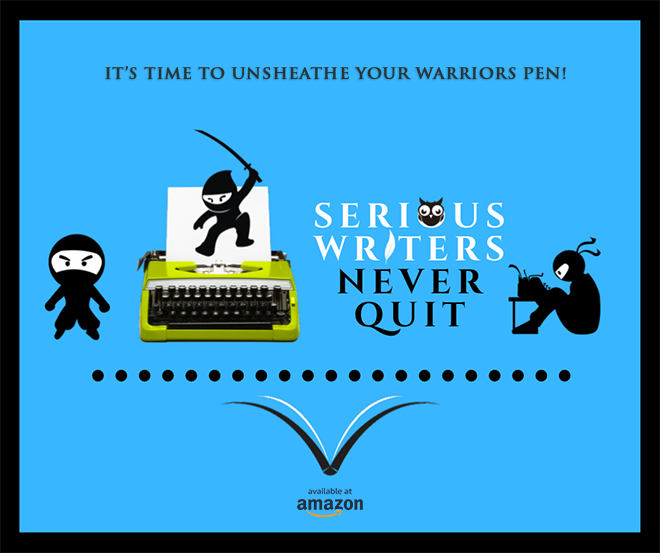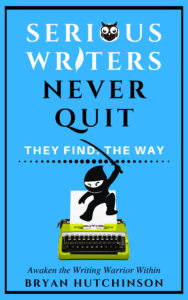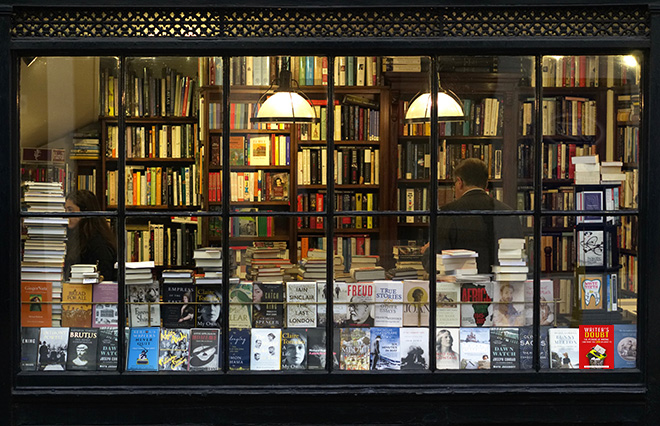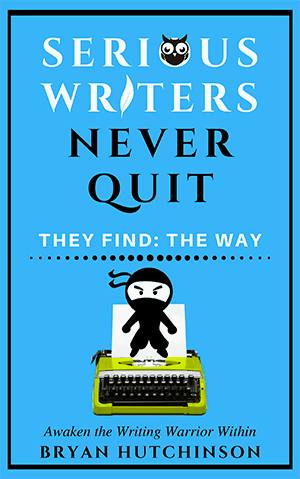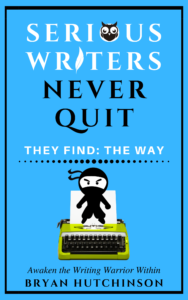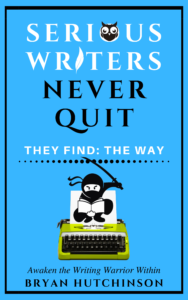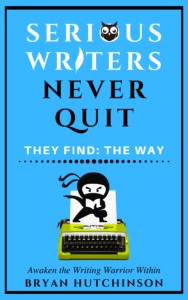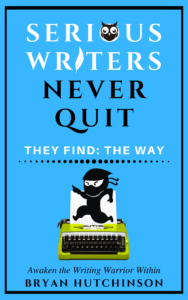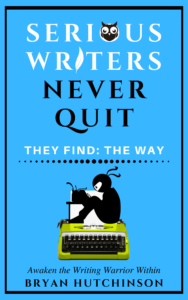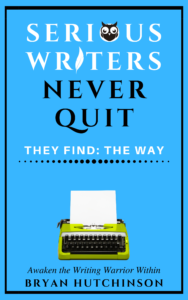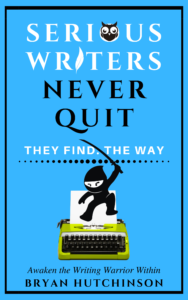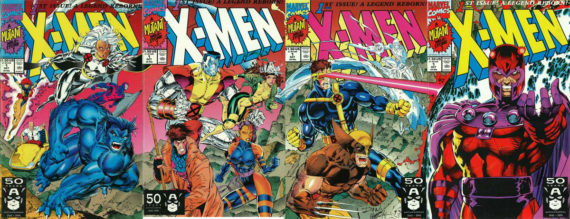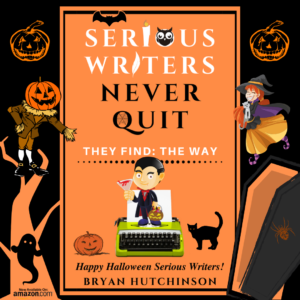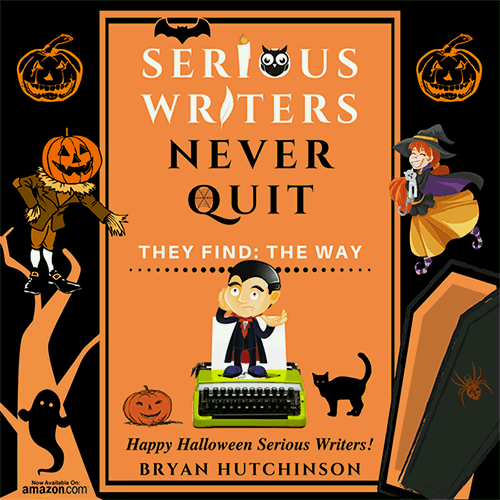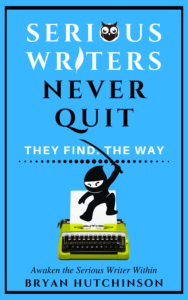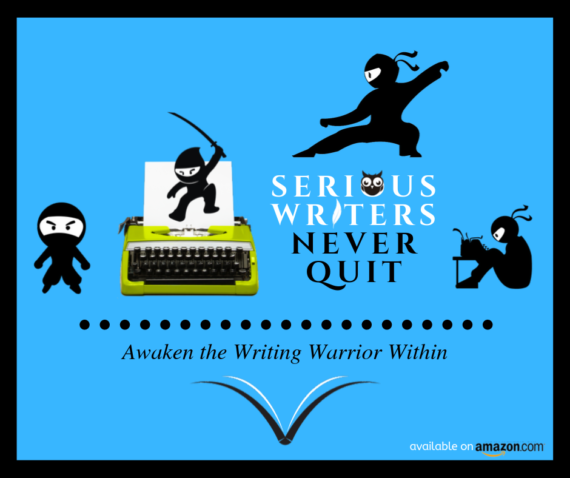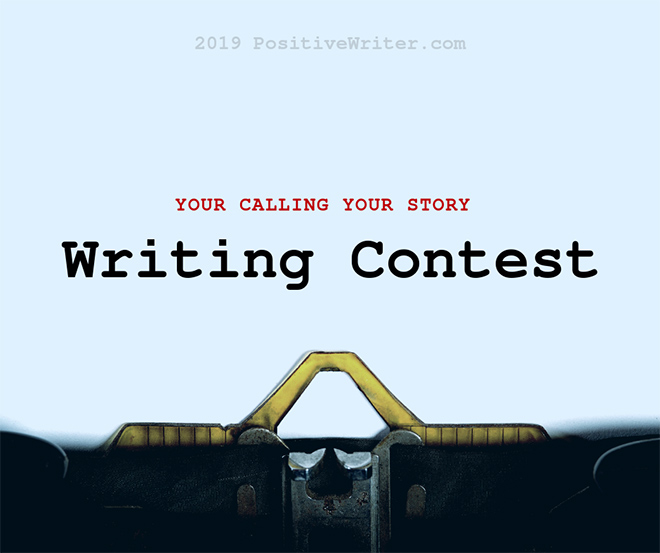If you’re a writer or artist who wants to activate the unlimited potential within you, this book will show you the way!
A heartfelt thanks to everyone who has reviewed Serious Writers Never Quit so far. A collection of blurbs from reviewers across the web are below, along with the links to their full reviews.
Any author could be proud to have their work remarked upon. Thank you so very much. I’m glad my work has meant enough for your time and consideration.
If you’ve reviewed Serious Writers Never Quit on your blog and the link to your review isn’t below, please let me know and I’ll be happy to add it.
'Serious Writers Never Quit' Can Bring You Mindblowing Revelations @IreneAprile #amwriting #onwriting Click To TweetReviews From The Blogosphere
“You will be using the lessons from this book daily for the rest of your life as a writer.” ―Alisa Russell, blog: Thriving in Grace
“I love the encouragement in this book and the straight talk we all need to hear. This book is PACKED with valuable advice!” ―Edie Melson, blog: The Write Conversation
“Hutchinson rips off the band-aid and shares why we must fight the urge to quit, whatever the reason, and dig deeper into why we wanted to write in the first place. A must-read that you will continually reference to stay on track and keep doing what you do—WRITE.” Harley Christensen, full review.
“I gotta say, this was one of the most enjoyable books about the writer’s mindset I have read. I found it encouraging, practical, and intuitive with insights and suggestions. I love the way it got me to thinking.” ―Blog: Juneta Key
“‘Serious Writers Never Quit’ is a valuable resource for any writer’s library. You will feel inspired to creative action by this book. It belongs on your bookshelf next to The War of Art.” ―Josh Pack, blog: Etched in Gold
“Chapter Eight is my favorite, The Way is To Design Your Own Plan. All my life I’ve been ‘the product of someone else’s version’ and I’ve come to resent that. I’m encouraged to keep writing.” ―Judy Blackburn, blog: Listening to my Characters
“This book will help you win the battle for your mind and your will.” ―Frank McKinley, blog: Thriving Writers
“‘Serious Writers Never Quit’ is about the psychological mechanism that underlies the writing process. It can bring you mindblowing revelations.” ―Irene April, blog: Turning Passion Into Words
“He gets me, seems to know exactly how I feel and what keeps me from writing. Extraordinary. Usually, I speed read, but this time I had to go back, and read every line, with focused attention and mindfulness.” ―Blog: Ursula Nieuwoudt
“‘Serious Writers Never Quit’ is a manual for writers and can help you get motivated or unstuck.” ―Bandi, blog: The B Word
“I highly recommend ‘Serious Writers Never Quit.’ That is, if you’re really serious.” ―Blog: Anne Peterson
Read this Book to Feel Better about your Writing and Improve It, too! ―Debbie De Louise, blog: Mysteries & more
“Refreshing and Empowering ‘Serious Writers Never Quit’ offers a different view than other writing books I’ve read. I think every writer needs to read this book.” ―blog: Danielle Bernock
“I love where he says that a writer’s biggest enemy is failure; so true, but everything he shares is about passing past that failure, and going on to the finish line, and to pursue your calling as a writer!” ―Del, blog: Pen 4 The Lord
“I like the way Bryan inserts motivation with cinematic sports themes. Well, it is inspiring. Try plugging in Survivor’s Eye of the Tiger on Spotify and you’ll feel the effect.” ―Blog, The Fed Up Declaration
“This Kindle ebook is a major shot in the arm that could lead you to write your bestselling book (or launch your successful farm or restaurant). Bryan’s tips for getting out from under perfectionism, and sticking with what you are serious about, are good advice for living in general. Though aimed at writers, Bryan’s advice is spot-on for anyone who aspires to be a success at what they do.” ―Blog, Jenny Nazak
“First of all, it was highly readable. I felt the author had taken me aside, put his arm around my shoulder and imparted all of his hard-won wisdom about “The Way” to the writing life. The simple list of 21 key points of “The Way” near the end of the book was, alone, worth the low price of the Kindle version I read.” ―Elizabeth Cottrell, blog, Heartspoken
“A must book for every writer. I love chapter eight, design your own plan… don’t write what we think others want to read but what you’re passionate about.” ―Jon Bates
“I confess that the author’s take on what readers want was definitely something I needed to see and he did it in a preachy-free way.” ―Stella Carrier
“Rather than feeling put down by what I would need to do in order to be a ‘serious writer’ (which has happened before), I instead felt uplifted albeit with moments where I shook my head saying ‘Don’t tell me that, it’ll be too easy and then I won’t have a good excuse not to anymore’.” ―Jocelyn Nielson
“Loved this book! Packed with practical “put in practice today” tips. I fell off my chair laughing when the author suggested I learn to procrastinate wisely.” ―La McCoy
“If you’ve struggled to write consistently, pick up Bryan’s book. It’ll help you get over your objections and begin to write.” ―J. Lalonde
“If you’re looking for a bit of encouragement, this book is a quick read that could fit the bill and get you motivated to start writing again. (Actually, there are tips here that could apply to other careers, as well.)” ―Blog, Leslie L. McKee
“I hear it all the time in the workshops I teach. “I don’t have time.” “I’m not good enough to be published.” The reasons, the excuses, the self-doubt… “Serious Writers Never Quit” is your answer… I should be handing this book out at every writing class I teach.” ―Mary Potter Kenyon
“Boom, there it was! For weeks I felt behind schedule and disappointed in my writing progress. But no more. I let those feelings go immediately. The day after reading Serious Writers Never Quit, I starting writing my book again.” ―Blog, Karen Brown Tyson
“I’ve recently found a kindred spirit in Bryan Hutchinson, author of Serious Writers Never Quit–They find: The Way. His ebook captures much of what I was trying to convey to my students. If this had been around back then, I would have made it required reading.” ―Blog, Laura Denooyer
“This book should be included with the purchase of any writing or editing program because it addresses the real issues, the issues that go on internally. There are books galore to help us with writing our craft, but none as eloquent that addresses self-doubt and how to overcome it. In fact, his process can be used for almost anything.” ―Blog, Angie McMann Writes

